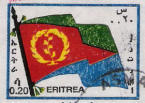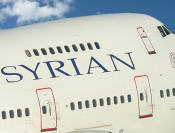 Zachary Sanders, a Brooklyn attorney, filed* suit in federal district court against the Office of Foreign Assets Control (“OFAC”) in connection with a $9,000 fine imposed on him by OFAC for failing to respond to a Request for Information (“RFI”) that the agency sent to him in 2000. The RFI sought information about suspected travel by Sanders to Cuba in 1998.
Zachary Sanders, a Brooklyn attorney, filed* suit in federal district court against the Office of Foreign Assets Control (“OFAC”) in connection with a $9,000 fine imposed on him by OFAC for failing to respond to a Request for Information (“RFI”) that the agency sent to him in 2000. The RFI sought information about suspected travel by Sanders to Cuba in 1998.
Although courts have tossed out challenges to the constitutionality of the travel embargo, this case presents a different issue. OFAC was not charging Sanders with travelling to Cuba but only with failing to answer questions OFAC asked about whether he had traveled to Cuba. In this case, the issue is whether penalizing Sanders for failing to answer the RFI violates the Fifth Amendment of the U.S. Constitution.
The story begins with Mr. Sander’s return to the United States on July 6, 1998. Customs officials became suspicious because Mr. Sander’s passport and travel papers showed that he had visited Mexico and then returned to the United States through the Bahamas on a transit visa. That, apparently, is a good indication that the traveler likely travelled to Cuba. Mr. Sander’s case wasn’t helped when Customs found a box of Cuban cigars in his luggage that weren’t listed on his customs declaration.
Almost two years later, on March 1, 2000, OFAC finally got around to sending the RFI at issue, which asked Sanders, among other things, whether he had travelled to Cuba, what he had done there and how much he had spent there. On February 13, 2002, OFAC sent a pre-penalty notice relating to Sander’s failure to respond to the RFI. The complaint for failure to answer the RFI was filed with the assigned ALJ on March 2, 2000. By the time that the administrative complaint was filed in 2005 by OFAC, the five-year statute of limitations contained in 28 U.S. § 2462 prevented the agency from including any charges based on the alleged 1998 trip.
A one-day hearing was held before the ALJ on June 27, 2005. It took the ALJ more than three years to write and to issue his five-page opinion, which he finally released on September 4, 2008. Such a lengthy gestation did not prevent the ALJ’s opinion from being an utter mess. Among other things, the ALJ wondered, even though no party argued this, whether OFAC could effectively extend the statute of limitations by simply filing RFIs and starting the five-year limitations period all over again. But after raising this issue, he never bothered to answer it.
More oddly, the ALJ acknowledged that the Fifth Amendment privilege against self-incrimination was applicable to the RFI because of the possibility of criminal prosecution for travel to Cuba. But he nonetheless imposed a $1,000 penalty assessment against Sanders, relying on the U.S. Supreme Court decision in Baxter v. Palmigiano, 425 U.S. 308 (1976), Baxter held that an adverse inference could be drawn in a civil proceeding based on a refusal to testify. Thus, if OFAC had charged Sanders with Cuba travel, it could draw an adverse inference from his refusal to say whether he had been to Cuba and could, in conjunction with other evidence, such as the smoking Cuban cigar box, find him guilty of travelling to Cuba. But the Baxter court did not say, and no court that I am aware of has said, that an agency could impose a civil penalty based solely and directly on a proper assertion of the Fifth Amendment privilege.
Upon review of the ALJ’s recommended decision and order, OFAC accepted everything in it, except the proposed penalty, which it increased to $9,000. Sanders’s district court complaint followed on July 16, 2009, more than 11 years after the alleged trip at issue, making this matter OFAC’s own version of Jarndyce and Jarndyce.
As an interesting detour in this case, Mr. Sander’s application for admission to the New Jersey Bar was denied over the alleged 1998 trip to Cuba and its aftermath, as well as two other Cuba trips not raised by the OFAC proceedings. But the decision ultimately appeared to be based on Sanders failure to declare the Cuban cigars in his baggage which occurred on his first two trips and not on the travel itself or the refusal to answer the RFI. Apparently Sanders finally wised up and, on the third trip, he didn’t pack any Cuban cigars in his luggage.
*PACER subscription required. I haven’t uploaded the large pdf file of the complaint to avoid undue bandwidth costs. If you don’t have a PACER subscription and want a copy of the complaint, email me and I’ll send it to you
 The day after Susan Rice, the U.S. Ambassador to the U.N., threatened new sanctions on Eritrea, Jonathan S. Gration, the U.S. Special Envoy to Sudan, in testimony given today before the Senate Foreign Relations Committee, called for the sanctions against Sudan to be lifted. According to this report in the Christian Science Monitor, Gration questioned whether genocide is ongoing in Sudan and stated that there was no evidence to support Sudan’s continued designation as a “state sponsor of terrorism.” Instead, that designation and the sanctions only hindered efforts, he claimed, to rebuild the country and to help dislocated Sudanese living in camps.
The day after Susan Rice, the U.S. Ambassador to the U.N., threatened new sanctions on Eritrea, Jonathan S. Gration, the U.S. Special Envoy to Sudan, in testimony given today before the Senate Foreign Relations Committee, called for the sanctions against Sudan to be lifted. According to this report in the Christian Science Monitor, Gration questioned whether genocide is ongoing in Sudan and stated that there was no evidence to support Sudan’s continued designation as a “state sponsor of terrorism.” Instead, that designation and the sanctions only hindered efforts, he claimed, to rebuild the country and to help dislocated Sudanese living in camps.
 Posted by
Posted by  Category:
Category: 

 In testimony before the House Foreign Affairs Committee, Susan Rice, the U.S. Ambassador to the United Nations,
In testimony before the House Foreign Affairs Committee, Susan Rice, the U.S. Ambassador to the United Nations,  According to
According to  The Office of Foreign Assets Control issued today a
The Office of Foreign Assets Control issued today a  Zachary Sanders, a Brooklyn attorney,
Zachary Sanders, a Brooklyn attorney, 

